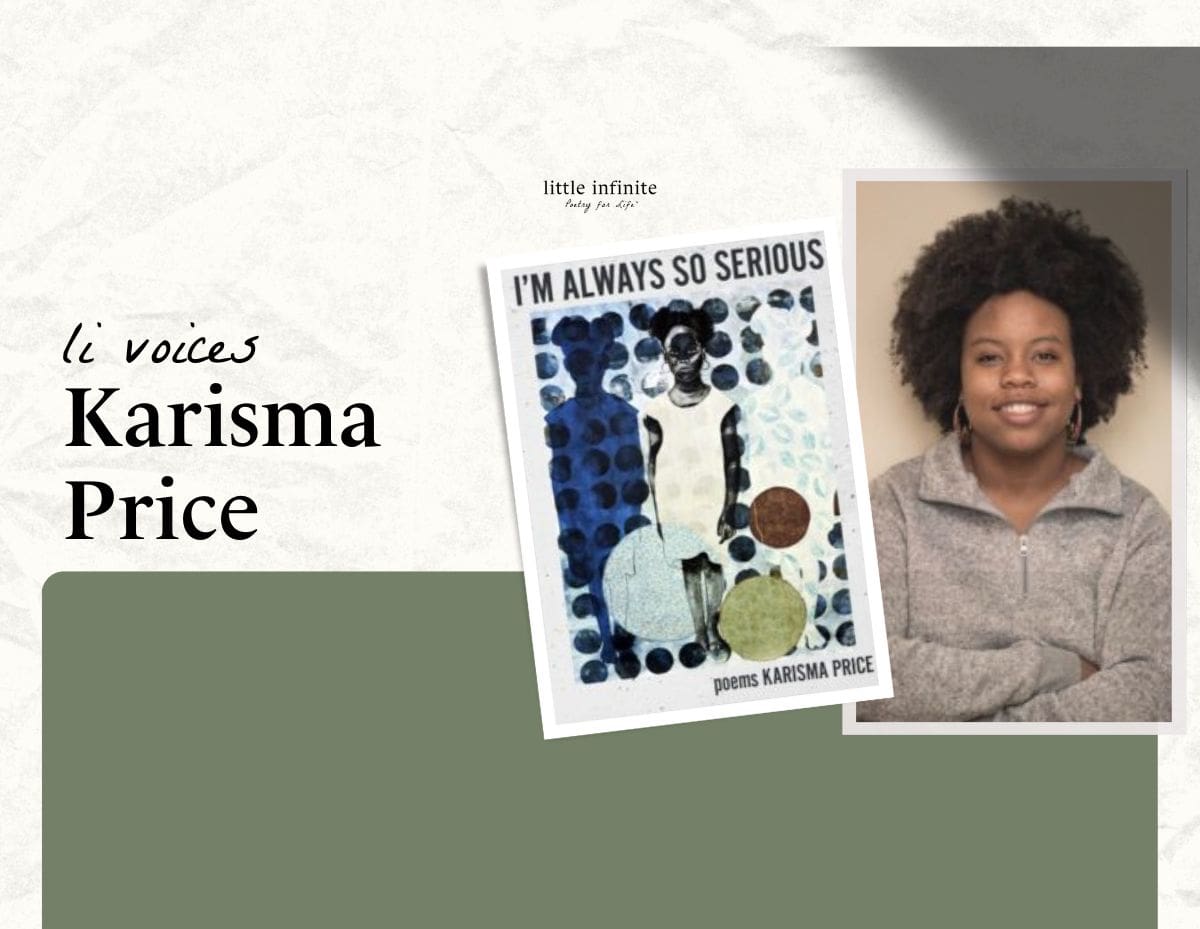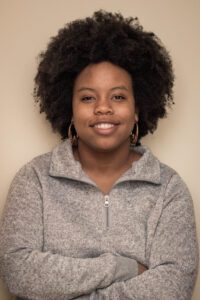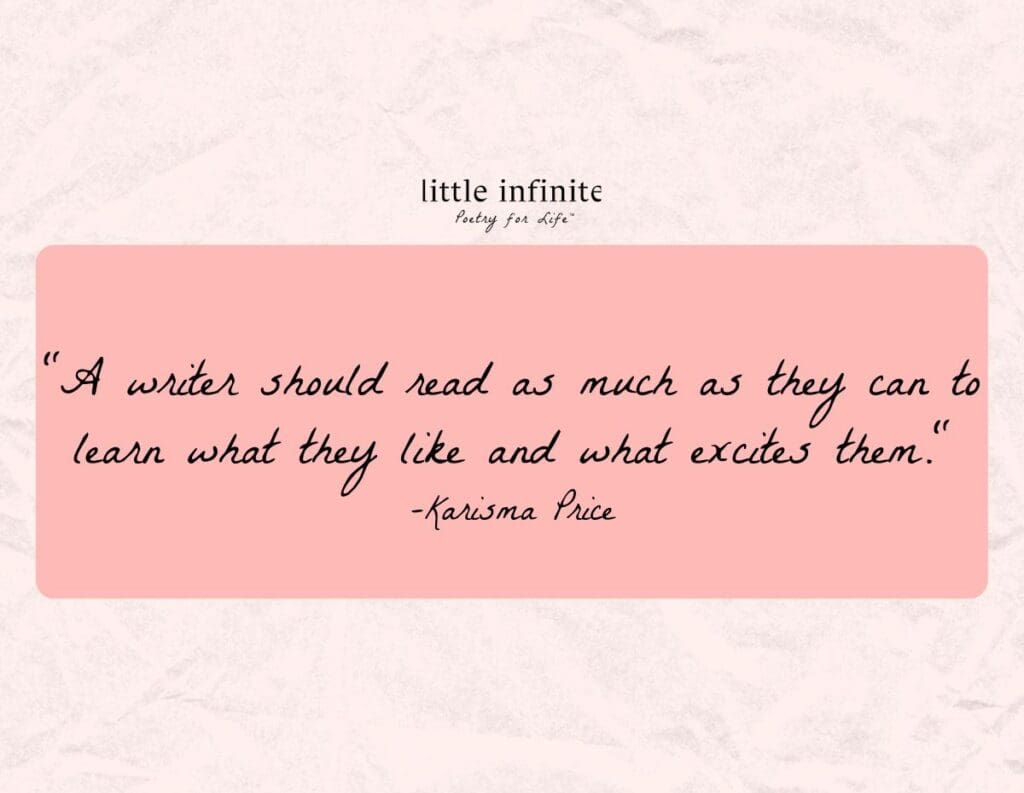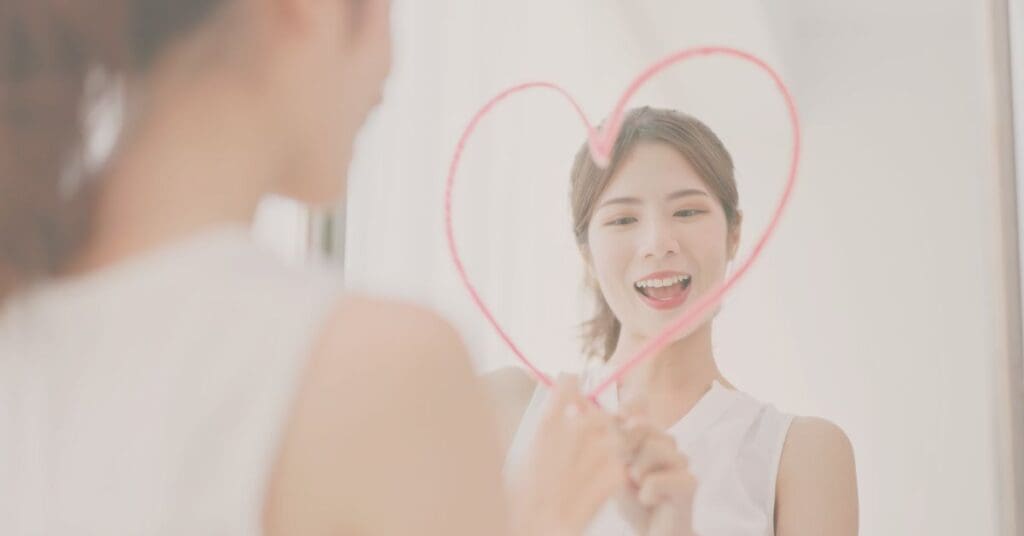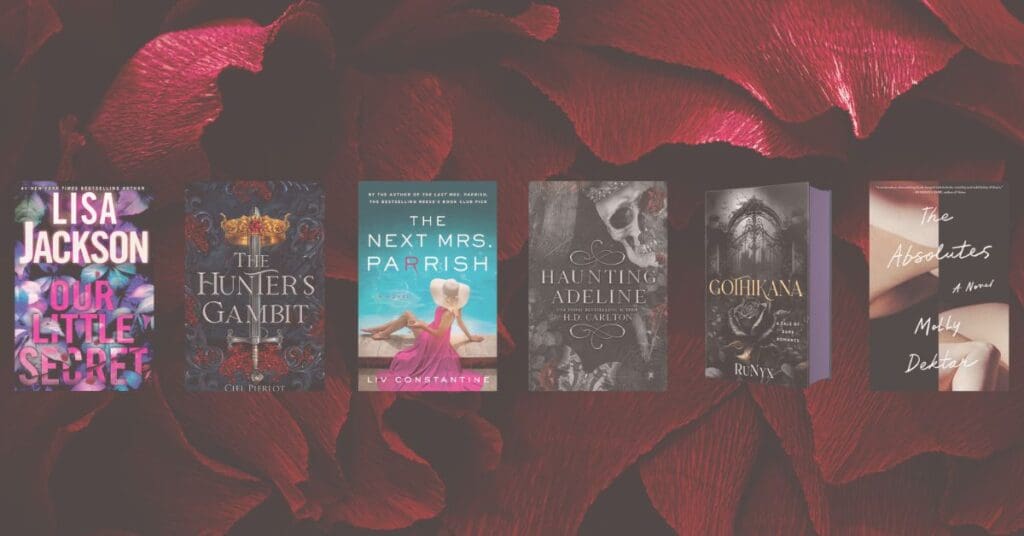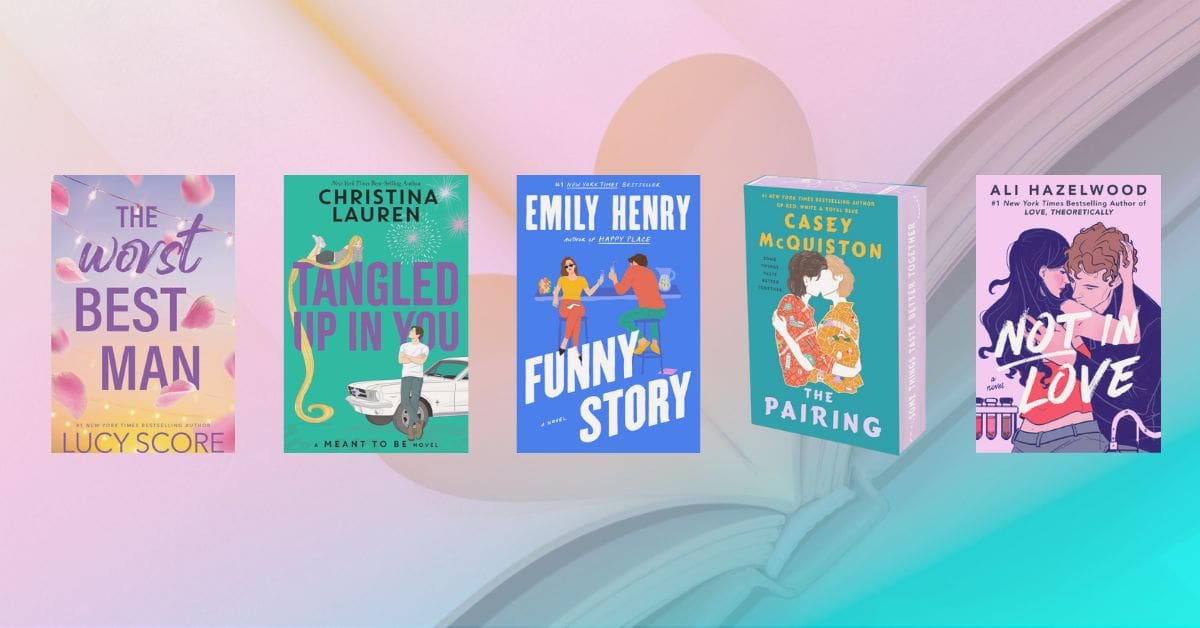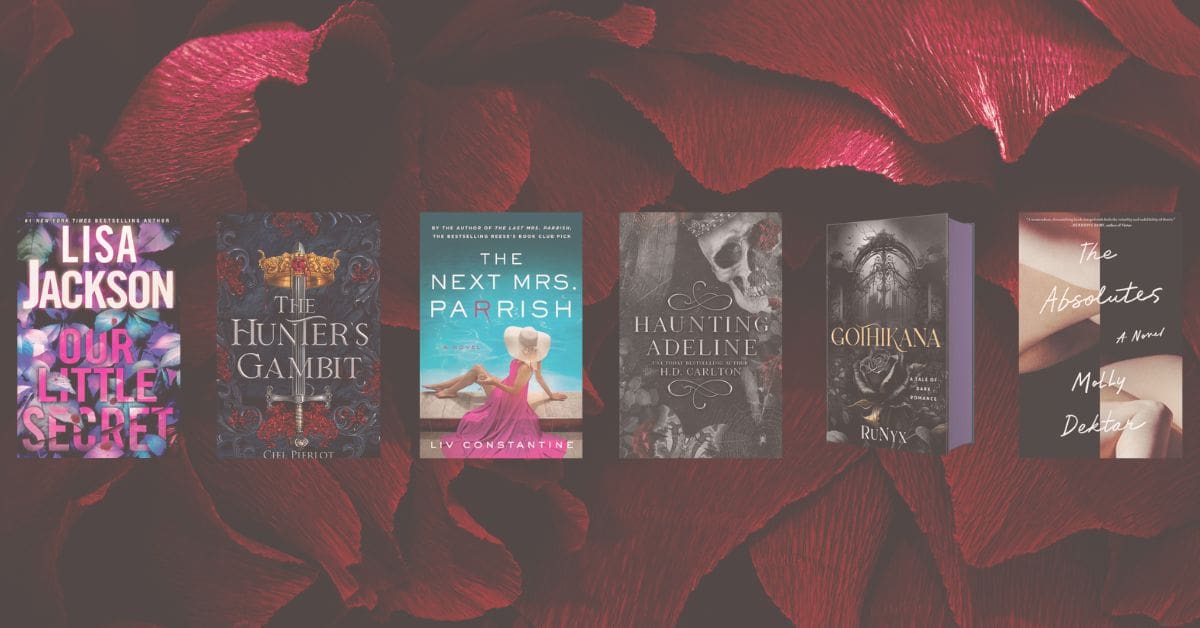little infinite voice exclusive feature on poet, Karisma Price
Karisma Price is an assistant professor of English at Tulane University. A poet, screenwriter, and media artist, she is the author of I’m Always So Serious (Sarabande Books, 2023). Her work has appeared in publications including Poetry, Indiana Review, Oxford American, Four Way Review, Academy of American Poets Poem-A-Day Series, and elsewhere. She is a Cave Canem Fellow, was a finalist for the 2019 Manchester Poetry Prize, and was awarded the 2020 J. Howard and Barbara M. J. Wood Prize from the Poetry Foundation. A native New Orleanian, she holds an MFA in poetry from New York University, where she was a Writers in the Public Schools Fellow.
When did you know poetry would be the writing outlet for you? Introduce us to your journey to poetry and how you got to where you are currently.
While poetry isn’t the only writing outlet that I use (I’m also a screenwriter and am trying my hand at speculative fiction), I don’t think I could write in those other mediums without having written poetry first. To me, poetry is like prayer: it requires a lot of meditation, and I can respond to myself and do a self-check in. Poetry mixes “emotional truth” with fact and feels like a hybrid genre to me. There’s a freedom in word choice, sound, rhythm, and how you play with the passage of time.
I’ve learned that every word matters on the page and in real life.
In regard to my journey to poetry, growing up my favorite subjects were English and Science. I loved reading as a child and loved to write letters, however, many of my first “ideal careers” were scienced based until I took a 7th grade creative writing class. I decided at 12 that I was going to be a poet even though I didn’t know any poets in real life. That previous year my family had just moved back to New Orleans after Hurricane Katrina, and I became interested in capturing my feelings and experiences.
One of the things I loved that in creative writing class my classmates gave me feedback, and I was expected to do the same and revise my work to turn in to my teacher. I went to an arts school so by the time I got to high school, I still took exploratory creative writing classes, but I was also in my school’s media arts program learning about photography and film. I went to Columbia University for undergrad and got a degree in Creative Writing with a concentration in poetry, and then I went to grad school right after and got my MFA in poetry from NYU. I’m Always so Serious is a revised draft of my MFA thesis.
If you could describe this collection (or your writing style) in three words, what would those words be and why?
Witness, archival, and playful. In my work, I try to capture a collective look on life, kinship, and place using not only a singular “I”, but a plural “we” whose voices range from Greek figures, musicians, and historical voices in Black America. I use that plural “we” in my persona poems and experimental forms and try to be playful by making as much use of the page as possible.
What does the title of this book mean to you? Tell us about how you came up with the title, I’m Always So Serious?
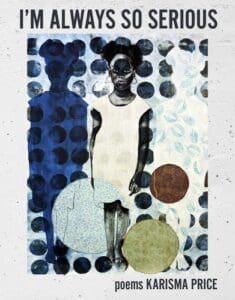
If you could only choose one aspect, what do you hope someone takes away from this collection?
I hope readers really meditate on how much place and history can impact a person and shape who they become.
What is your creative process like? If you could dish on the most unique part of your writing process, what would it be?
I don’t think my process is “unique,” but I do like repeating words and sounds to see if I can write whole poems around them or incorporate them inside the poem and have them take on a new meaning each time. I like to start writing in a notebook and then finishing the poem on the computer. Something fun that I like to incorporate in my work is “misunderstandings”: When I misread or mishear a phrase, I try to incorporate that in my work since it is not actually what was said/heard.
What is the one resource that has helped you during your poetry and writing journey the most? This can be a certain app, website, book, podcast, journal, etc.
Reading and giving myself permission to write the things I want to write have helped me the most. A writer should read as much as they can to learn what they like and what excites them. You should create your own personal canon to guide you on your way. Also, you shouldn’t censor yourself or think something sounds “too boring” or “too wild”. It is not your job to tell yourself no in the first draft. After writing that draft, you should revise and think if the work would be helping or hurting someone.
If you could give a new writer one piece of advice for starting, what would that piece of advice be? Why does this piece of advice personally stand out to you?
Find a good writing community. Community is a very good resource that has been helpful to me. Feeling a part of a group and being encouraged does wonders to your self-esteem and makes writing feel less isolating.
“Poetry for Life” is little infinite’s mantra. We try to make it easier to carry poetry through different phases of your life. Poetry for Life can hold sentiment in various aspects according to the person, which is why we love it. What does “Poetry for Life” mean to you?
“Poetry for Life” means to always leave room for questions. Questions keep the imagination going and leaves us open to serendipity.
What is next on your creative bucket list? Where do you hope to see your poetry and influence going in the community?
I hope to sell a TV pilot that I wrote and start writing for television. I hope that my poems reach everyday people because while I am a professor, I don’t write for academics.
Where can you find you on social media?
Twitter: @itskayprice
Instagram: @2muchkarisma
